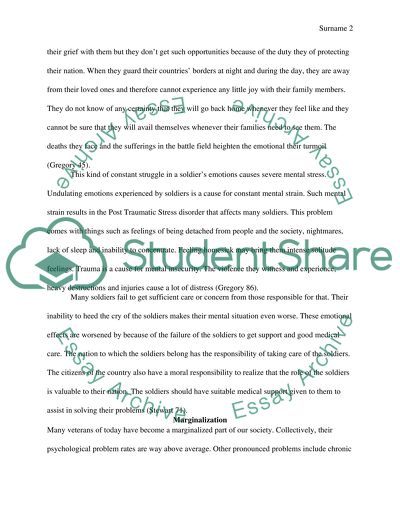Cite this document
(“Physical Injuries And Psychological Effects: Trauma Of A Soldier Essay”, n.d.)
Retrieved de https://studentshare.org/literature/1464029-trauma-of-a-solider
Retrieved de https://studentshare.org/literature/1464029-trauma-of-a-solider
(Physical Injuries And Psychological Effects: Trauma Of A Soldier Essay)
https://studentshare.org/literature/1464029-trauma-of-a-solider.
https://studentshare.org/literature/1464029-trauma-of-a-solider.
“Physical Injuries And Psychological Effects: Trauma Of A Soldier Essay”, n.d. https://studentshare.org/literature/1464029-trauma-of-a-solider.


